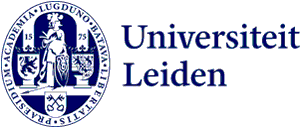
University introduces lay talk and it looks like this
Complex research with a generous sprinkling of jargon: PhD defences can be difficult for non-experts to follow. In the compulsory new lay talk, PhD candidates begin by explaining their dissertation in words of one syllable. And it’s not just the PhD’s family and friends who appreciate this.
‘Can we test the screens for our committee member from Australia?’ asks PhD supervisor Rogier Creemers just before the first PhD ceremony of the academic year begins. ‘But first it’s time for our new lay talk!’
This is a great new addition, says beadle Erick van Zuijlen, who is also at this premiere. The candidate has ten minutes to explain in clear language what their research was about, the insights they gained and why these might be interesting to society. This helps the guests understand the relevance of the research. Only then does the often very technical defence in front of the committee begin.
The more specific, the better
Sinologist Straton Papagianneas is the very first PhD candidate to give a lay talk. He wrote his dissertation about the sweeping digitalisation of justice in China. Chinese courts have become ‘smart courts’. They increasingly use big data and AI for their verdicts, Papagianneas explains in his lay talk. He gives concrete examples of how this works. All this online information, Papagianneas warns, gives the Chinese government yet more control over its citizens.
Physicist Tereza Vakthel is the second PhD candidate of the day. She uses vivid illustrations to introduce her research on Josephson junctions, the building blocks for the quantum computer. A Josephson junction comprises two superconductors separated by a thin insulating barrier, and Vakthel’s aim, she says, was to make this even more advanced.
What do the two researchers think about the lay talk? And how did their guests respond? Watch the video for an impression.
Logistical operation
Van Zuijlen and his colleagues from the Office of the Beadle can look back on a successful start. ‘Family and friends are always proud. But we often hear people say, grandma for instance, they didn’t understand a single thing.’
So he was bursting with enthusiasm when PhD candidate Lucia Grijpink wrote an opinion piece in Mare last year calling for a compulsory lay talk, following in the footsteps of other universities. ‘It was already an option here but only at the special request of the PhD candidate.’
A team worked on a plan with the Office of the Beadle, and Rector Hester Bijl and the University Council immediately welcomed the proposal. Introducing the lay talk meant a huge logistical operation because PhD ceremonies now need to be scheduled over four working days instead of three in the already so busy Academy Building.
Nice for researchers too
But the extra effort has definitely been worth it, says Van Zuijlen. ‘PhD candidates say they are pleased with the chance to explain their research beforehand. It also means they get a warm-up before the defence begins. And their guests now have a better idea of what the research is about.’
This doesn’t just apply to the candidate’s grandparents and old friends. Katia (also see video), a guest of Tereza Vakthel, says, ‘I’m a physicist too but in a different specialism. So a short and simple explanation of the research is really nice for me too.’ This shows that it’s not just laypersons who welcome the lay talk.
Video and photo: Danique ter Horst
Text: Linda van Putten
